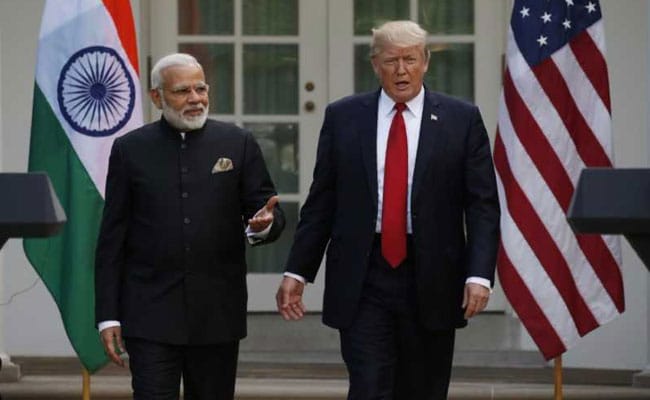
- India could lose a vital US trade concession
- India currently enjoys zero tariffs on $5.6 billion of exports to the US
- Donald Trump said India was a "very high tariff nation"
US President Donald Trump on Saturday said India was a "very high tariff nation" and he wanted to charge "a reciprocal tax" to match the heavy duties that New Delhi applied on products imported from the US.
"India is a very high tariff nation. When we send a motorcycle to India, they charge 100 per cent tariff. When India sends a motorcycle to us, we charge nothing. I want a reciprocal tax, at least I want to charge a tax," news agency ANI quoted him as saying the Conservative Political Action Conference.
In the past, Donald Trump has slammed India for "high tariffs" on American products, and said India wants to start trade talks with the US "immediately". India wanted the trade deal primarily "to keep him happy" he said, describing the country as a "tariff king" in October last year.
Last month, news agency Reuters reported that India could lose a vital US trade concession, under which it enjoys zero tariffs on $5.6 billion of exports to the United States, amid a widening dispute over its trade and investment policies.
A move to withdraw the Generalised System of Preferences (GSP) from India, the world's largest beneficiary of a scheme that has been in force since the 1970s, would be the strongest punitive action against India since President Donald Trump took office in 2017 vowing to reduce the US deficit with large economies.
The trigger for the latest downturn in trade ties was India's new rules on e-commerce that restrict the way Amazon and Walmart-backed Flipkart do business in a rapidly growing online market set to touch $200 billion by 2027, Reuters said.
That, coming on top of a drive to force global card payments companies such as Mastercard and Visa to move their data to India and the imposition of higher tariffs on electronic products and smartphones, left a broader trade package the two sides were working on through last year in tatters.
India and the United States have developed close political and security ties. But bilateral trade, which stood at $126 billion in 2017, is widely seen to be performing at nearly a quarter of its potential.
Track Latest News Live on NDTV.com and get news updates from India and around the world

